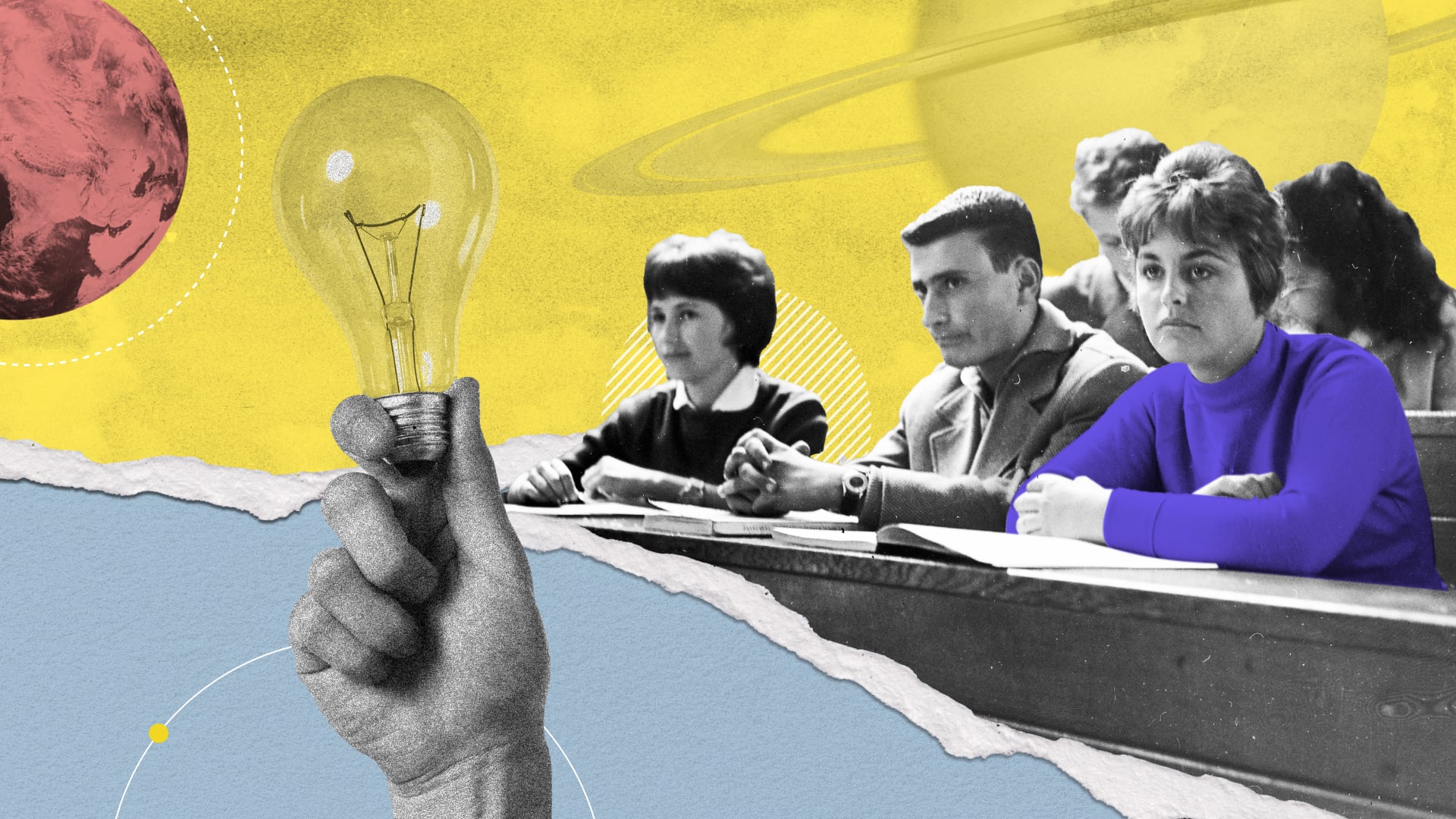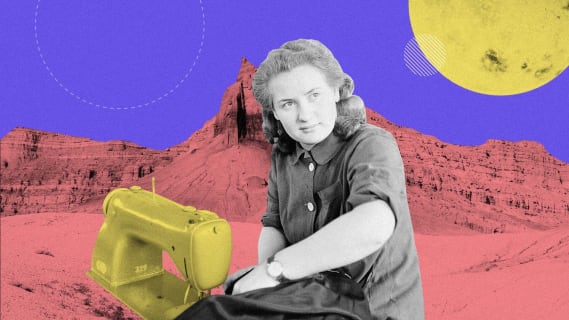Meet the Boldare Foundation and democratic school, Grajfka
A combination of dreams and frustration can bring about extraordinary things. How to support self-development in a new, variable world? How can the future generation be independent and fulfilled? Read about the Boldare Foundation and its democratic school, Grajfka.

Table of contents
The Boldare Foundation — why did we establish it?
Self-management at Boldare shows us how much value comes from equality, self-reliance in action, and individual agency. We believe that working in a self-organized culture fosters motivation, creativity, and innovation. It helps people use their talents – and this is what triggers the greatest changes in the world. These qualities of self-organization have convinced us to share our practical experience with the world and educate people about it.
After years of running a self-organized company, we also clearly see the multitude of challenges that people face in their daily work. Although freedom is tempting, the truth is that as adults, we still struggle to decide independently without fear of consequences or punishment. These insights have also led us to want to influence adults.
The Boldare Foundation was thus born out of a combination of dreams and frustration. The frustration stemmed from the inability to find an effective way to support adults in finding their way in a self-organized environment. The dreams were about impacting both the local and broader environment. As a result, today, we have a foundation based on education about freedom, responsibility, and cooperation. It also provides tools that fit today’s world and support group work.
The challenges of self-organized working
So, what are these challenges, inseparable from self-organized working? The first one that comes to my mind is the ability to make decisions, for which current education does not prepare us. In traditional education, most decisions are made for us by others (the teacher, the class bell, or the timetable). It is not uncommon for me to see talented and committed people standing on the precipice of decisions and balancing without results.
What else? The ability to take small steps. We are so afraid of being judged that we prefer to have a long-term plan in place from the beginning. Because of fear, we don’t take that first step, which is the most important one. It’s the key challenge of self-organization – learning to put baby steps in place.
Another may be learning to prioritize ourselves and consciously organize our time. A big challenge is also being attentive to the direction we set for ourselves and where we are heading to. It requires an openness to ourselves, others, and also failure.
Baby steps toward the goal
As we see it, working within a self-organizing structure requires a specific attitude and skills. The Boldare Foundation wants to offer a supportive environment to acquire them. To do this, we started in our own backyard and first invested in the education of Boldare employees. We are constantly helping our people develop their skills, which are in such demand in today’s world. We also established the Boldareship Academy, our in-house modern leadership program.
Now we would like to expand these initiatives to have a broader impact on society. The potential we see lies in the education of both children and adults. And that’s what the Boldare Foundation focuses on. We provide access to education, support self-development, teach about volatility and how to deal with it, and provide tools that are as close as possible to what the world needs today.
Democratic school “Grajfka”
As the next step, “Grajfka” grew out of the Boldare Foundation. I knew from the beginning that it would be a democratic school because this idea is close to my heart. Democratic education flows in my veins. The mechanisms of its operation are very similar to those of Boldare - based on group process and teamwork.
I believe that democratic schools grow people who know what they like and want to do. They can make decisions and consciously reject what the environment tries to impose. As a result, they can devote themselves to their passion and expertise in areas that come from the heart. I want to believe that these are the adults who will build the world of tomorrow with full awareness.
Democratic education vs. traditional education
So, what are the differences between democratic and traditional education, you might ask? Democratic schools are based on a completely different system than traditional education. First, they focus on the development of social and emotional skills. They build in a child the awareness of his/her own strengths and interests, they allow the child to develop at their own rhythm. Importantly, children function in a diverse environment (which mirrors the real world) and learn to cooperate with others.
Briefly speaking, a democratic education is education that most appropriately meets the needs of the learner, the community, and society. It does this through developing reflective individuals who are collaborative problem-solvers and creative, flexible thinkers. Just what today’s world of constant political turmoil and emergent technologies requires. This means that students decide on the process for their own development. The idea of democratic education is non-coercive and individualistic.
Acquiring theoretical general knowledge is not the main aim of a democratic school. Of course, it happens in nontraditional ways, but the essential goal is to develop in a young person the qualities that are necessary to find a good job in the future. Democratic education promotes in children, individualism, creativity, logical thinking, the ability to draw conclusions, independence, and responsibility.
Democratic education is based on the idea that learning is a human right, not a duty. The teacher plays a different role, helping children and not imposing a point of view. In some schools, the system of grades, punishments, and rewards are also abandoned. Decisions on how to act or how to resolve conflicts are made together by voting. A student’s vote has the same weight as the teacher’s vote.
What can democratic education give children?
I believe that our future lies not only in self-organizing companies, but also in schools that will properly prepare people to function in the modern world. And democratic schools will do just that.
In the world of tomorrow, work will be focused on results. Effort or position will no longer matter. Variability will become inherent; our children will change jobs a dozen times. Self-awareness, teamwork, and communication skills will be crucial. Today’s parents are no longer able to talk to their children about careers because half of the possibilities and professions do not yet exist and are yet to emerge. Knowledge is no longer enough because it is available everywhere. It turns out that the most important thing is to benefit from different elements of yourself and the world around you. Through global competition, one has to learn on the fly, quickly and depending on the context, often from scratch. From this perspective, a democratic school helps open up to the new and different – for both children and their parents.
Are self-organization and democratic schools the right answers to a changing world?
To be clear, I am far from a radical. I don’t believe that self-organizing workplaces await everyone. Self-organization is not the only correct answer. Just as a democratic school is not the only proper form of education – it’s just a new proposition for childhood and youth.
At the same time, it’s hard to deny that self-organization is the future of the labor market. Unpredictability and volatility will inevitably become the norms in many places. Wherever people want to draw on them and change their business thinking, self-organization will be the ideal solution. There will also be areas where we will probably stick with old, proven work models because there will be no need to change them.
Future plans and next steps
Today, more and more companies are coming to Boldare for non-digital transformations strictly related to organizational management. We want to meet them with our, so far in-house, Boldareship Academy program. It’s a year-long seminar full of tools, knowledge, and skills, where we introduce what leadership in self-organization is. Soon, we plan to support this initiative more strongly on behalf of the Foundation and offer it more widely, so that not only our employees can try it.
And how about the future of “Grajfka”? Currently, we are setting up a carpentry shop and a theater stage. We recruit new children on an ongoing basis. We also want to support parents and their development by organizing various events and workshops. To learn more visit “Grajfka” Facebook page.
Share this article:







